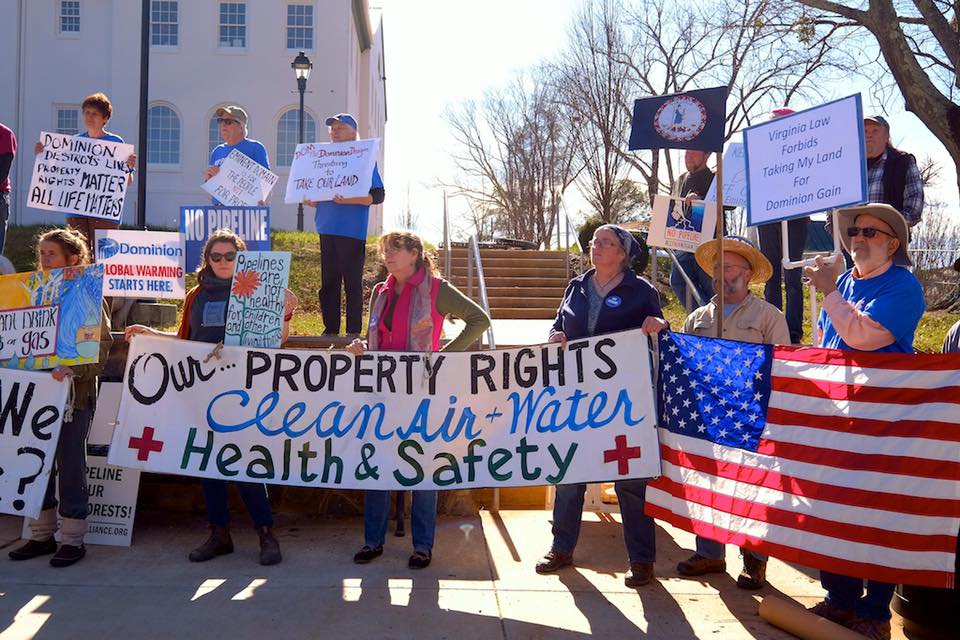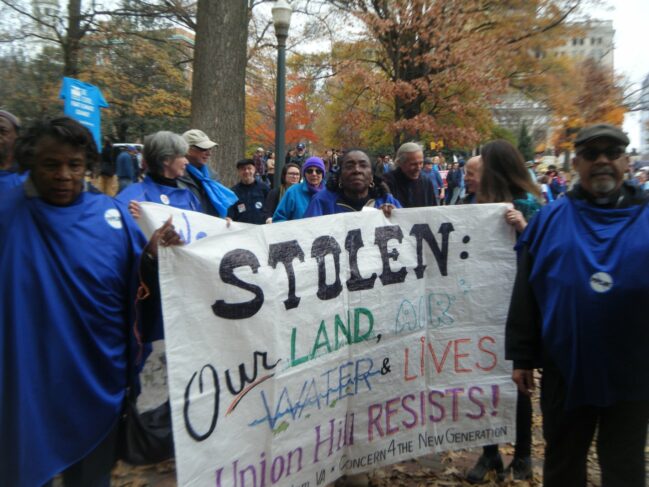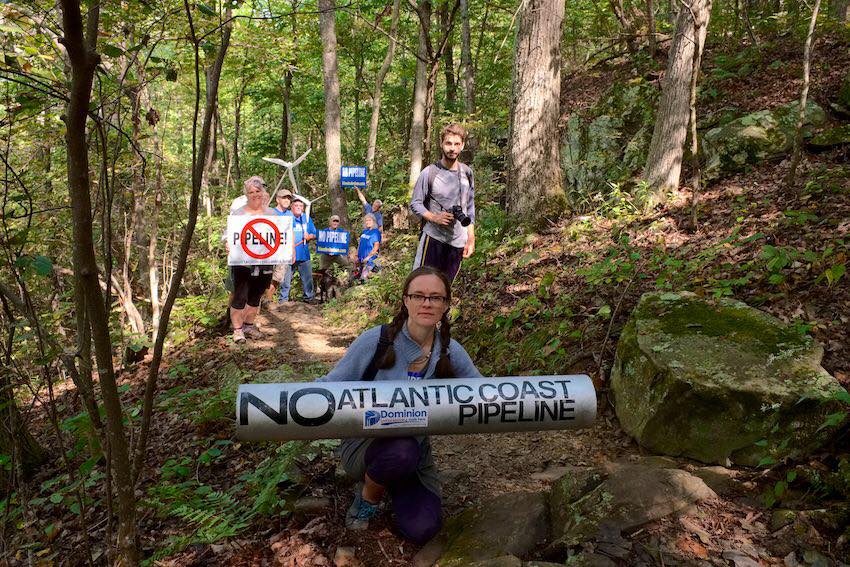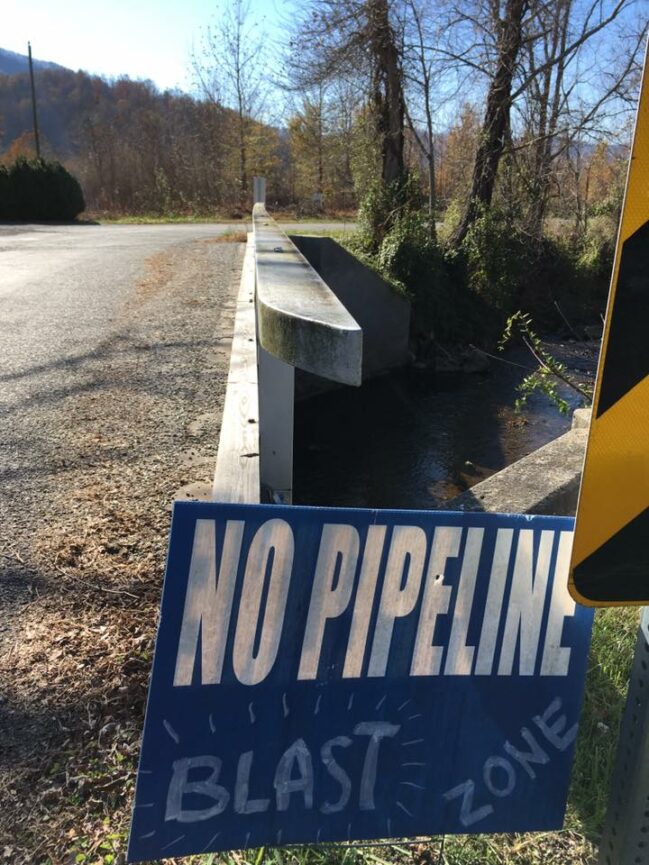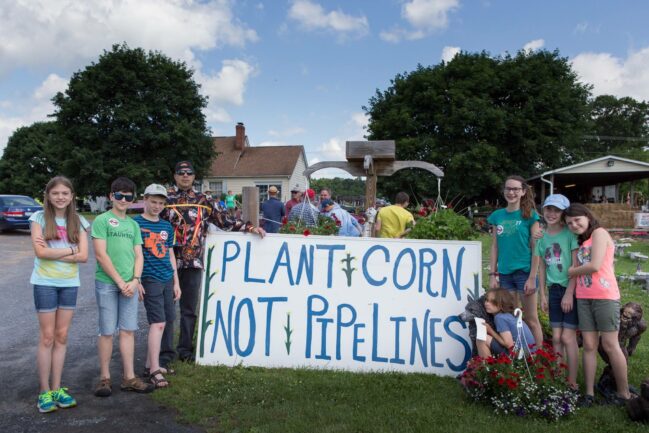In July 2020, project backers Dominion Energy and Duke Energy announced that they were cancelling the pipeline project, due to the prospect of continued delays and opposition from a coalition of environmentalists and property rights activists.
Developers had also sought to build a compressor station for the pipeline in Union Hill, a historic African-American community settled by Freedmen and Freedwomen in the years after the Civil War. The environmental justice issues resulted in a lawsuit brought on behalf of Union Hill residents against the Virginia Air Pollution Control Board. Union Hill was victorious at the 4th Circuit Court of Appeals, which found an “omission of environmental justice site review, lack of consideration of the household study methods, and the disproportionate health impacts of gas turbines on African Americans with specific, pre-existing health conditions.”
The pipeline, whose costs ballooned to $8 billion from the original estimate of $4.5-$5 billion due to continued legal challenges, was proposed to start in Harrison County, West Virginia, drawing gas from wells in the Utica and Marcellus gas fields, and travel southeast through eastern Virginia and North Carolina to its terminus in Robeson County, North Carolina. A branch was proposed to run east to Chesapeake, Virginia, bringing the total length to about 600 miles. The project originated in September 2013 when the Obama administration granted a request from Dominion Transmission to export gas to Japan and India.
Despite cancellation of the project, Atlantic Coast Pipeline has so far refused to return easements to affected landowners on the now-abandoned pipeline’s route. The ACP’s backers submitted a proposal to FERC in January 2021 outlining how it plans to “abandon” the pipeline project.
Recent Media Coverage
- (April 21, 2021): Virginia Mercury: Virginia landowners urge FERC to require cancelled Atlantic Coast Pipeline to relinquish easements
- (February 24, 2021): Indy Week: The Atlantic Coast Pipeline Is a Bust, but Property Owners Along the Route Are Stuck in Limbo
- (January 5, 2021): PBS: Regulators get plan for undoing the Atlantic Coast Pipeline
- (August 15, 2020): News and Advance: A look at the Atlantic Coast Pipeline easement process that left Nelson landowners $15 million richer
- (July 30, 2020): Energy News Network: No longer in Atlantic Coast Pipeline’s path, landowners consider next steps
- (July 29, 2020): Virginia Mercury: The Atlantic Coast Pipeline was canceled. What happens to all the land acquired for it?
- (July 5, 2020): Washington Post: Energy companies abandon long-delayed Atlantic Coast Pipeline
- (March 30, 2019): Nelson County Times: Environmental activists fight Atlantic Coast Pipeline from the sky
Project Details
- Owner: Dominion Questar Gas (48.00%), Duke Energy (47.00%), Southern Company (2.50%), Piedmont Natural Gas (2.50%)
- Capacity: 1.5 billion cubic feet per day
- Length: 600 miles,
- Diameter: 20-inches, 36-inches, 42-inches
- Cost: $5.1 billion
- Status: CANCELLED (JULY 2020)
- Start Year: N/A
- Bank lenders: Bank of America, JP Morgan Chase [source]
Project Status
Eminent Domain:
-
February 2018: ACP begins to file eminent domain condemnation claims against landowners refusing to sign easements for the pipeline [source]
Indigenous Free, Prior & Informed Consent; Consultation & Environmental Justice:
- No free, prior & informed consent. Free, Prior and Informed Consent (FPIC) is a specific right that pertains to Indigenous peoples and is recognized in the United Nations Declaration on the Rights of Indigenous Peoples (UNDRIP). It allows them to give or withhold consent to a project that may affect them or their territories. Once they have given their consent, they can withdraw it at any stage. Furthermore, FPIC enables them to negotiate the conditions under which the project will be designed, implemented, monitored and evaluated. This is also embedded within the universal right to self-determination. [source]
Outstanding Permits:
-
October 2017: FERC issues certificate of public convenience and necessity for Atlantic Coast Pipeline.
- July 2017: The Federal Energy Regulatory Commission issued a draft environmental impact statement (EIS) for the project on December 30, 2016, with a final EIS issued on July 21, 2017.
Impact Litigation / Court Fights
- Federal Court:

The Cowboy and Indian Alliance that formed to defeat Keystone XL joined the Bold Alliance and Oil Change International to plant “Seeds of Resistance” Ponca sacred corn on land in Virginia and W. Virginia that lies in the paths of the Atlantic Coast and Mountain Valley fracked gas pipelines in 2016. (Photo: Peter Aaslestad)
[Select information and map data excerpted from Global Energy Monitor, with permission and Creative Commons license.]


